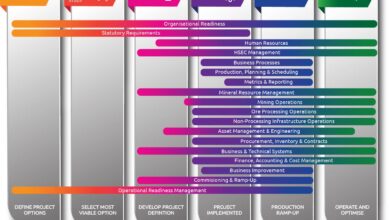The Importance of Regular Electrical Inspections for Home Safety

Electrical systems are integral to modern living, powering everything from lighting and appliances to heating and cooling systems. Despite their importance, electrical systems are often taken for granted until something goes wrong. Regular electrical inspections are crucial for maintaining the safety and efficiency of a home’s electrical system. We will explore the importance of regular electrical inspections, their benefits, and key components that should be checked during an inspection. Understanding these aspects will help homeowners ensure their electrical systems remain safe and functional.
Enhancing Home Safety
One of the primary reasons for regular electrical inspections is to enhance home safety. Faulty wiring, outdated electrical panels, and overloaded circuits can pose significant safety hazards, including the risk of electrical fires. According to the National Fire Protection Association (NFPA), electrical failures or malfunctions are a leading cause of house fires. Regular inspections can identify and rectify potential issues before they escalate into dangerous situations.
During an electrical inspection, a licensed electrician examines the entire electrical system, checking for signs of wear and tear, corrosion, and potential fire hazards. They ensure that wiring is up to code and that all electrical connections are secure. Inspections also involve testing circuit breakers and fuses to ensure they function correctly, preventing electrical overloads that could lead to fires.
Additionally, inspections can detect issues such as frayed wires, loose connections, and outdated components that could cause electrical shocks or power outages. By addressing these problems early, homeowners can reduce the risk of accidents and ensure their electrical systems operate safely. Regular inspections provide peace of mind, knowing that the home’s electrical system is in good condition and compliant with safety standards.
Improving Energy Efficiency
Regular electrical inspections can also contribute to improved energy efficiency. An inefficient electrical system can lead to higher energy consumption and utility bills. Issues such as outdated wiring, poor insulation, and faulty appliances can cause the system to work harder than necessary, consuming more power. During an inspection, electricians can identify these inefficiencies and recommend upgrades or repairs to improve the system’s performance.
For example, replacing old, inefficient wiring with modern, energy-efficient alternatives can reduce energy loss and lower electricity bills. Additionally, seeking out the best Electricity Rates can further reduce your monthly expenses. Upgrading to energy-efficient lighting and appliances can also make a significant difference. Electricians can suggest energy-saving solutions, such as installing programmable thermostats, smart meters, and energy-efficient light fixtures, further enhancing energy efficiency.
Moreover, regular maintenance and inspections help ensure the electrical system is not wasting energy due to hidden issues. For instance, detecting and repairing minor electrical leaks can prevent energy loss and save money over time. By optimizing the electrical system’s efficiency, homeowners can reduce their environmental impact and enjoy long-term cost savings. Additionally, utilizing texas power choose allows homeowners to select the most suitable energy plans, enhancing further the benefits of their well-maintained and efficient electrical systems.
Extending the Lifespan of Electrical Components
Another important benefit of regular electrical inspections is the potential to extend the lifespan of electrical components. Electrical systems and appliances have a finite lifespan, and regular maintenance can help maximize their longevity. Inspections allow electricians to identify components nearing the end of their useful life and replace them before they fail, preventing unexpected breakdowns and costly repairs.
For instance, circuit breakers and fuses can wear out over time, losing their ability to protect the system from overloads. Regular inspections can identify when these components need to be replaced, ensuring the system remains protected. Similarly, electrical outlets, switches, and wiring can degrade due to age and usage. Replacing worn-out components can prevent malfunctions and extend the overall lifespan of the electrical system.
Regular inspections also provide an opportunity for an electrical panel upgrade. Older homes, in particular, may have electrical systems that are not designed to handle the demands of modern appliances and technology. Upgrading these systems during an inspection can prevent future issues and ensure the home’s electrical infrastructure can support current and future needs.
Key Components Checked During an Electrical Inspection
A comprehensive electrical inspection covers several key components to ensure the system’s safety and functionality. One of the primary components inspected is the electrical panel. The panel, also known as the breaker box, houses circuit breakers that control the flow of electricity throughout the home. Inspectors check for signs of wear, corrosion, and proper labeling and ensure that the panel is adequately sized for the home’s electrical needs.
Wiring is another critical component that electricians inspect. They look for frayed or damaged wires, loose connections, and outdated wiring types, such as knob-and-tube or aluminum wiring, which can pose safety risks. They also check for proper insulation and secure mounting to prevent electrical hazards.
Outlets and switches are inspected for wear, damage, and proper grounding. Electricians test outlets to ensure they function correctly and check for issues such as reversed polarity or loose connections. Ground Fault Circuit Interrupter (GFCI) outlets, required in wet areas like kitchens and bathrooms, are also tested to ensure adequate protection against electrical shocks.
Lighting fixtures and electrical appliances are examined to ensure they are in good working condition and do not overload the system. Inspectors check for proper wattage and secure connections and may recommend replacing outdated or inefficient fixtures with modern, energy-saving alternatives.
In addition to these components, electricians inspect smoke detectors, carbon monoxide detectors, and other safety devices to ensure they function correctly. These devices are crucial for home safety, providing early warnings in case of fire or gas leaks.
Conclusion
Regular electrical inspections are essential for maintaining a home’s electrical system’s safety, efficiency, and longevity. These inspections enhance home safety by identifying and addressing potential hazards, improving energy efficiency, and extending the lifespan of electrical components. By checking key components such as the electrical panel, wiring, outlets, switches, and lighting fixtures, electricians can ensure that the system is in good condition and compliant with safety standards. Homeowners who prioritize regular electrical inspections can enjoy peace of mind, knowing that their electrical system is safe, efficient, and reliable. Regular inspections are a smart decision that protects the home and its occupants.



